Navigating the world of construction bids can be a complex task, and sometimes, the news isn't what we hoped for. It's important to communicate rejection with professionalism while still maintaining a positive relationship for future opportunities. In this article, we'll explore how to craft a sensitive and effective letter template that conveys your decision clearly without burning bridges. Join us as we delve into the nuances of bid rejection letters and provide you with practical tips you won't want to miss!

Professional tone
Regrettably, the submitted bid for the construction project has not been accepted. Factors influencing this decision include budget constraints, scope evaluation, and alignment with project timelines. Alternative proposals that better met the project's criteria were selected. We appreciate the effort and resources invested in the bid process. Thank you for your understanding and we wish you success in future endeavors.
Clear rejection statement
The construction bid determination process involves careful evaluation of submitted offers, ensuring compliance with project specifications and budget constraints. The bid submitted by [Company Name] on [Submission Date] unfortunately did not meet our requirements, leading to a clear rejection of their proposal. Key areas of concern included discrepancies in the pricing breakdown (overall budget exceeding $[specific amount]), missing essential documentation (such as insurance certificates), and deviations from the proposed timeline (current project estimated completion date of [date]). This decision aimed to uphold the standards necessary for the successful completion of the [Project Name] at [Project Location].
Reason for denial
The construction bid rejection process often stems from various factors impacting the assessment of proposals. Examples include the bid amount exceeding budget constraints, discrepancies in meeting specified qualifications or standards, or failure to comply with submission guidelines outlined by the project's governing authority. Timeliness of submission significantly influences decisions, with late bids often disqualified outright. Moreover, potential concerns regarding the bidder's financial stability or previous performance on similar projects may also contribute to a rejection. Ultimately, clear communication of the reasons for denial helps maintain professional relationships and encourages bidders to improve future proposals.
Future opportunities encouragement
Construction bids often face rejection due to competitive factors or budget constraints. In a construction project context, bidders can be encouraged for future opportunities to participate. Constructive feedback on submitted proposals enhances future submissions. Building relationships with bidding companies can lead to improved collaboration in subsequent projects. Maintaining open communication fosters a supportive environment and encourages resubmission for future projects. Highlighting potential upcoming projects within the same region adds a hopeful outlook, motivating bidders to stay engaged.
Gratitude for participation
The construction bid process can be competitive, and expressing gratitude for participation is essential. Our organization values the effort and time that each bidder invests in the proposal submissions. Despite the high-quality bids received, we have decided to select a different contractor for the upcoming project within an urban development area. We appreciate the challenging work that goes into preparing a bid, particularly given the recent standards and regulations imposed by the local government. Your expertise in the construction industry and innovative solutions are recognized. We encourage you to participate in upcoming projects, as your contributions are vital to the growth of our community. Thank you once again for your understanding and effort.
Letter Template For Construction Bid Rejection Samples
Letter template of construction bid rejection for lack of necessary qualifications
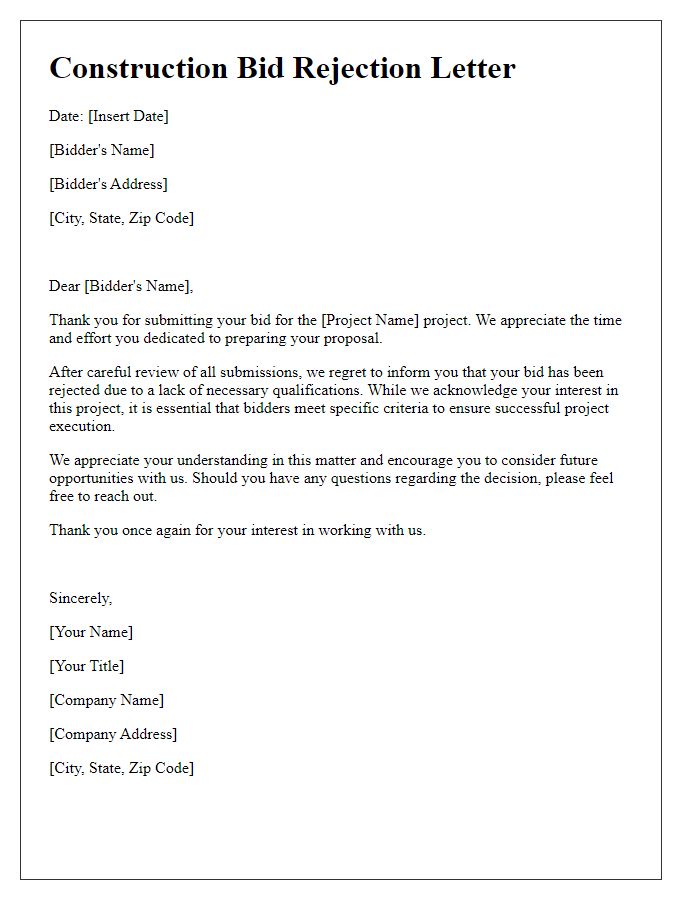
Letter template of construction bid rejection with future proposal invitation
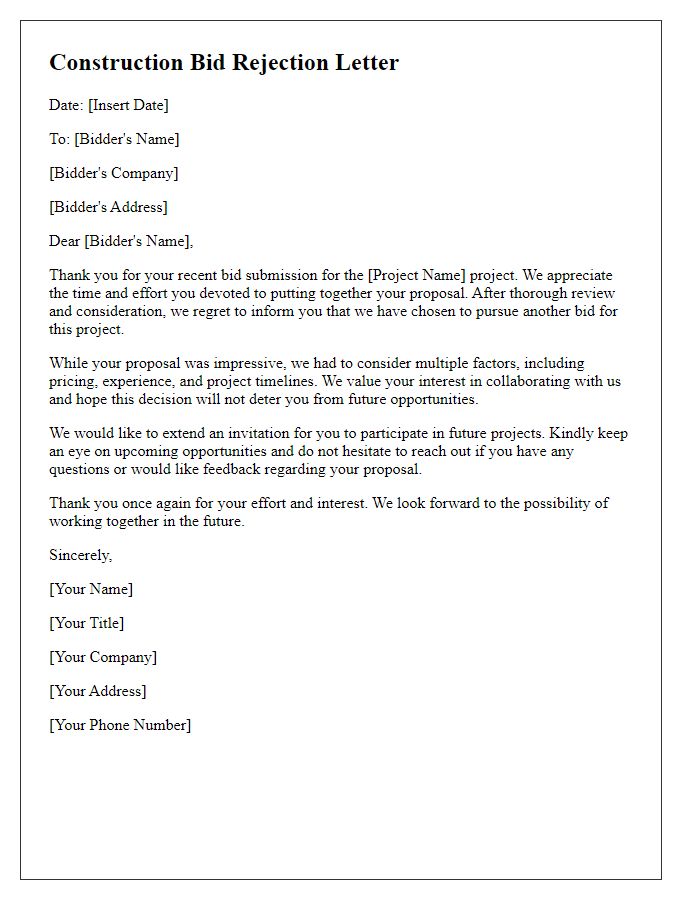

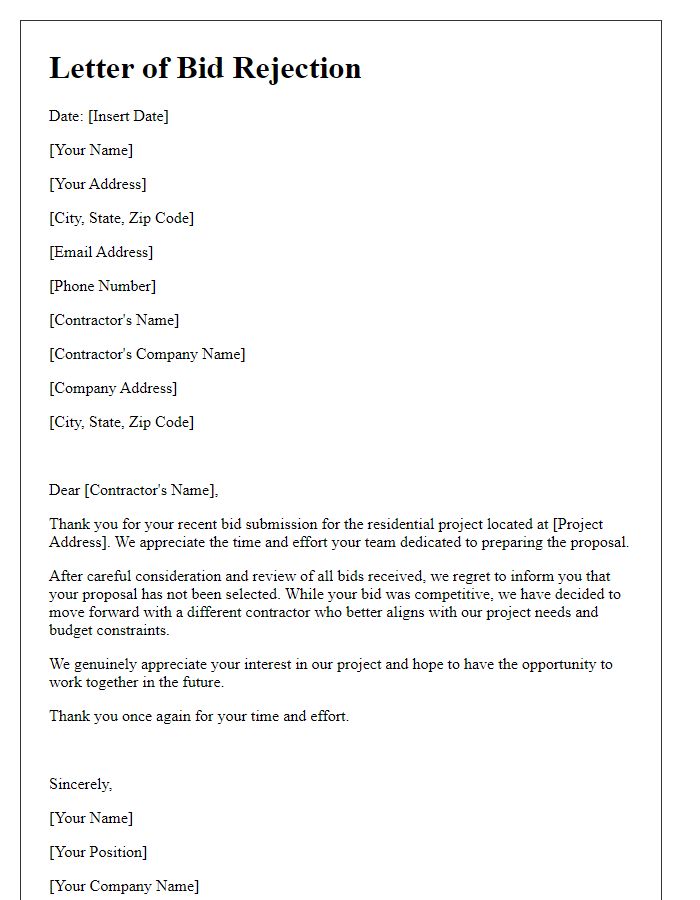
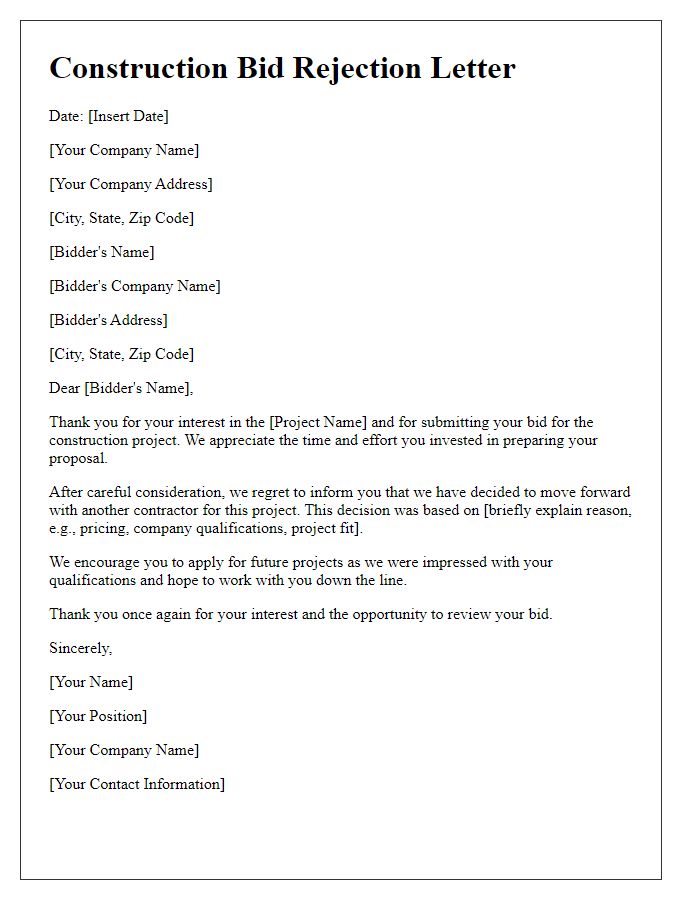
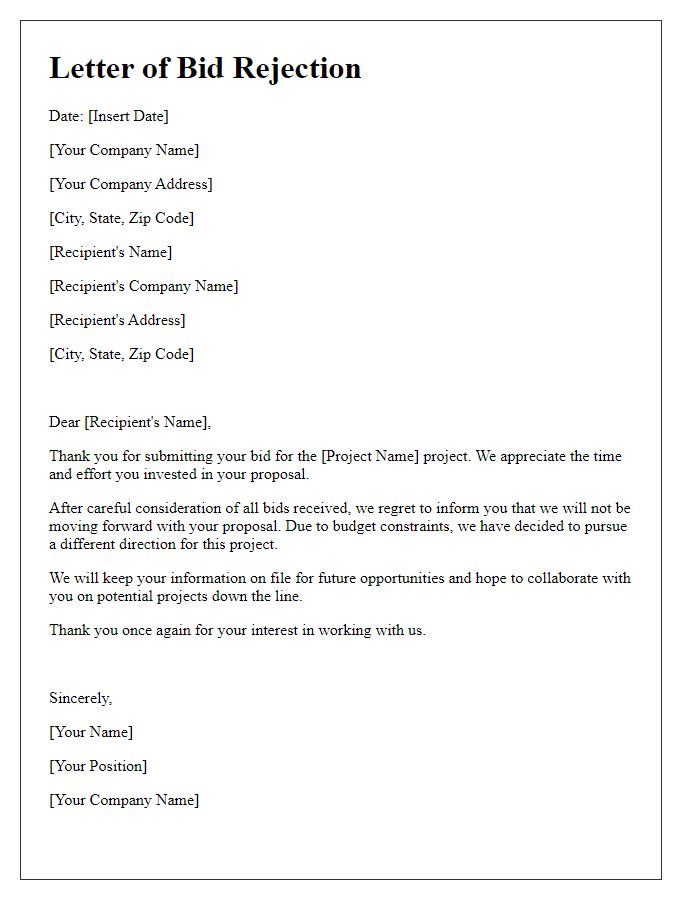
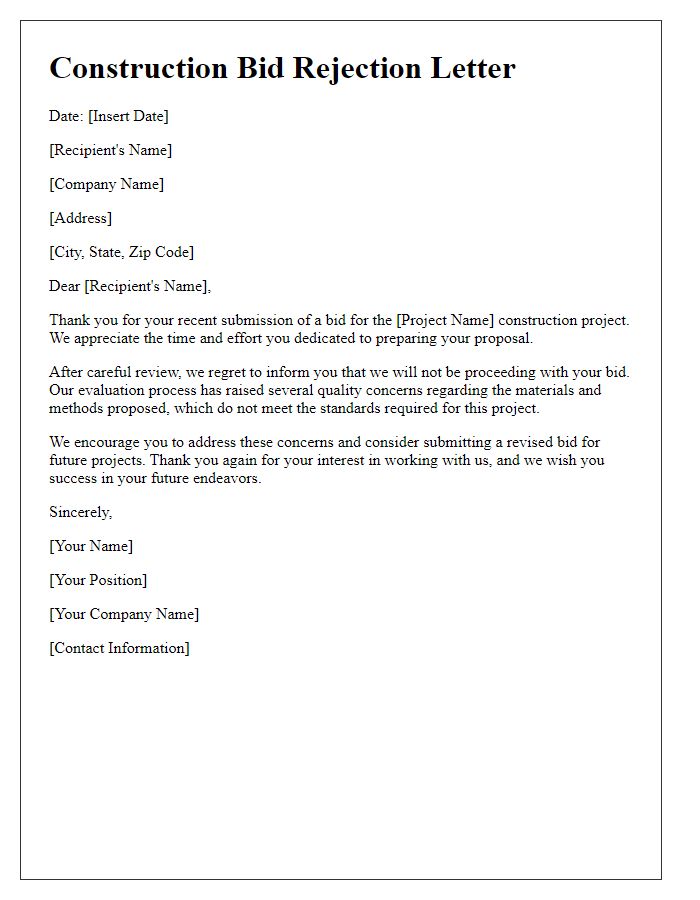
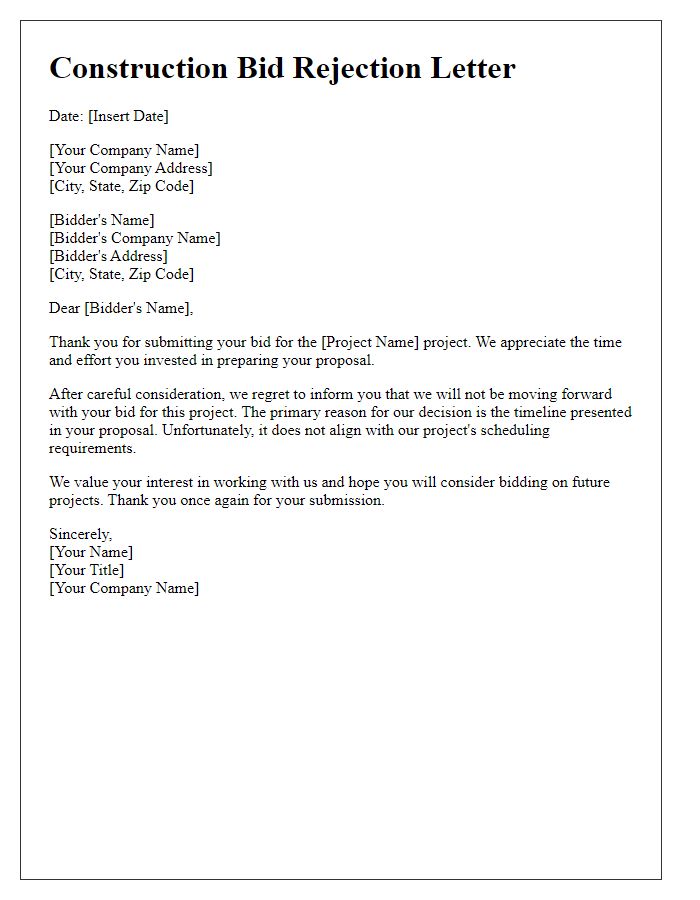
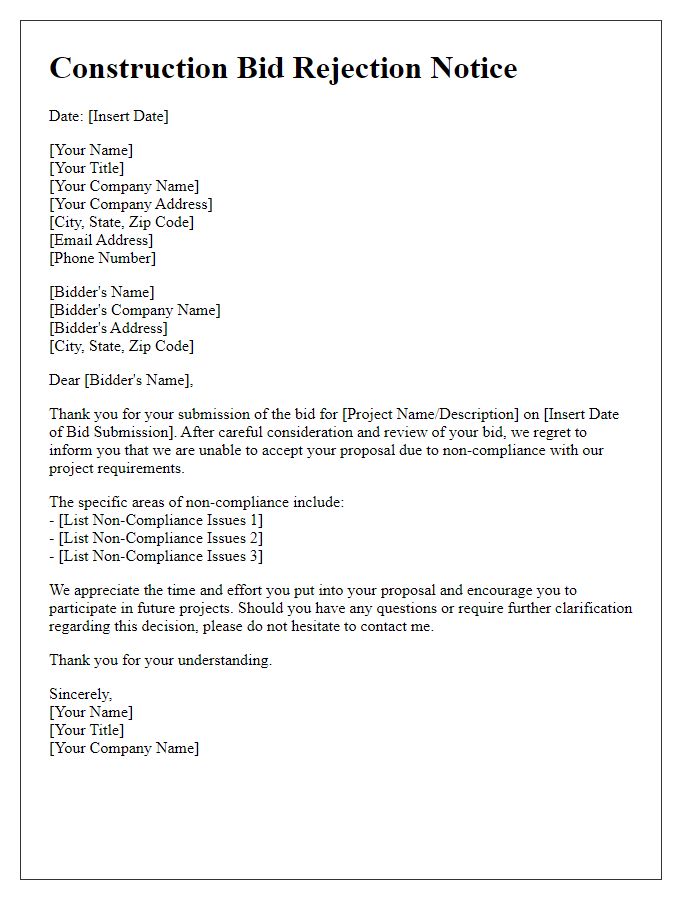
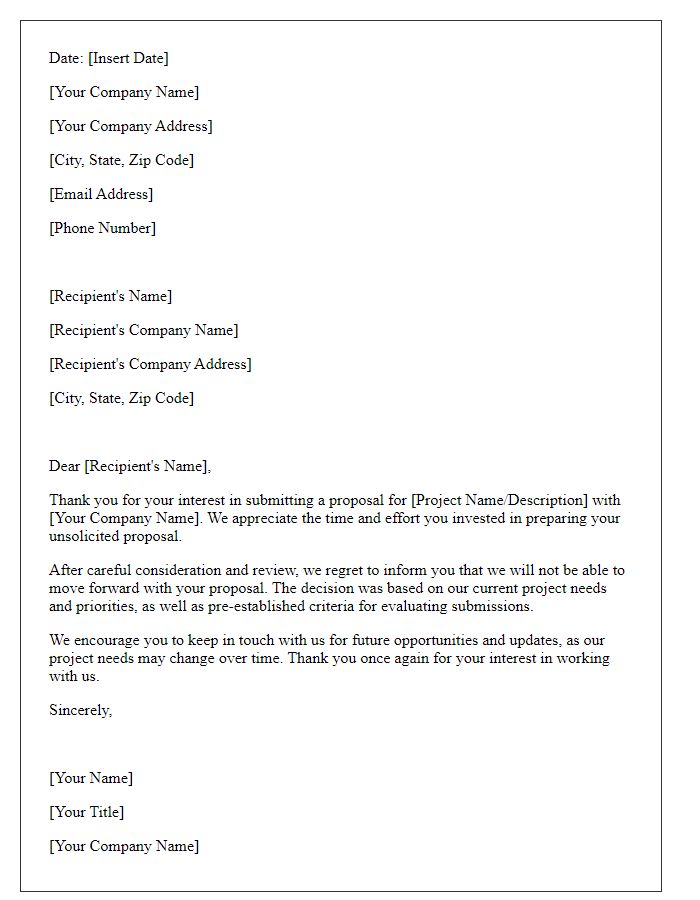
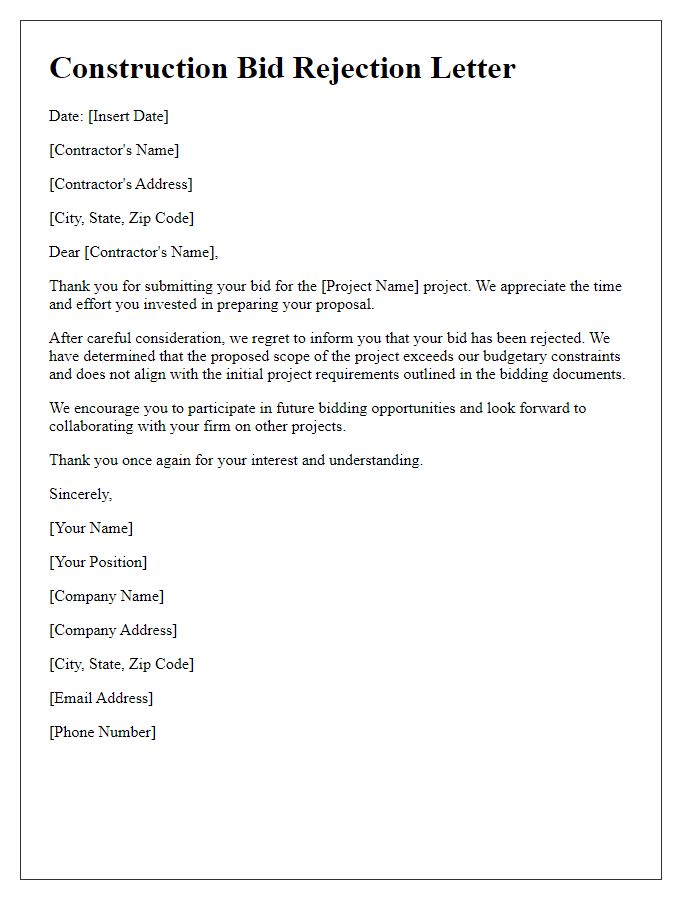

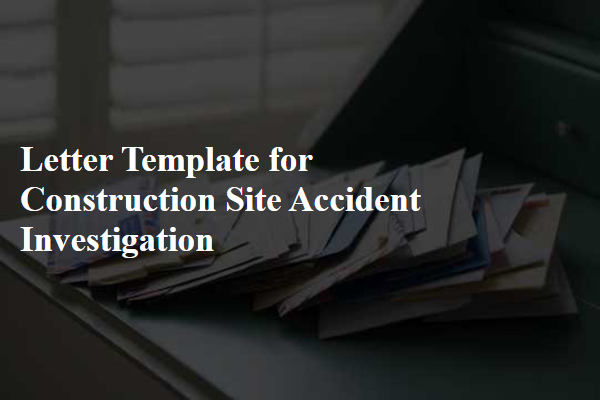
Comments